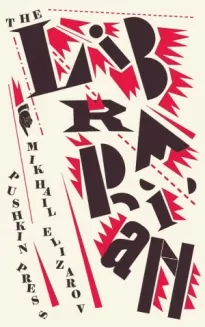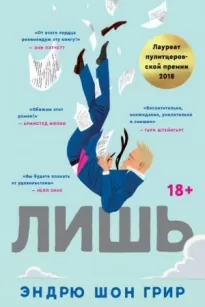The Librarian

- Автор: Михаил Елизаров
- Жанр: Современная проза / Социальная фантастика
- Дата выхода: 2015
Читать книгу "The Librarian"
THE BATTLE OF NEVERBINO
THE COALITION’S DETACHMENTS were organized in a primitive fashion, after the example of the Russian forces at the Battle of Kulikovo Field. The individuals in its staff headquarters were remote from modern military tactics, but nonetheless—as became clear later—quite practical in their approach.
The avant-garde of the formation consisted of the patrol and advance regiments, made up of reading rooms. Located behind them was a large regiment made up of brigades from six libraries, with its flanks protected by right-flank and left-flank regiments, each consisting of four combined brigades. Sheltering behind the large regiment was Shulga’s clan, which called itself the reserve regiment, and the ambush regiment stationed in a small stretch of forest nearby was the detachment from Lagudov’s clan, which also had only moderate claims to excellence as a fighting force.
Books of Endurance were extracted from secret depositories. Special readers, gathering groups of fifty people around them, read through the Books, straining their voices as they rendered the listeners’ bodies insensible to wounds.
The allusion to Kulikovo Field was reflected in the challenge to a duel issued to all comers by the crane driver Dankevich as she whirled her terrible hook round her head. No duel took place, however— no Peresvet could be found among the ranks of the libraries.
Battle commenced at about two o’clock in the morning. Pumped full of strength, the “mums” moved in to attack the patrol and advance regiments. After suffering heavy losses, the reading-room militias pulled back.
Polina Gorn issued orders from a low hill where she was surrounded by her guard. Seeing that the frontal attack had run out of momentum and was threatening to turn into a pointless, drawn-out battle, Gorn created an advantage of numbers on the flank by throwing six units of a hundred women against the left-flank regiment, which fifteen minutes later no longer existed, having been crushed by the hammers of former railway workers.
Shulga’s reserve regiment, which was responsible for preventing outflanking movements, abandoned the left-hand regiment to its fate, swung round the right-hand regiment and made straight for the high ground where Gorn’s headquarters was located.
The detachments led by the mighty Dankevich emerged at the rear of the combined forces, creating a genuine threat of encirclement. Lagudov’s ambush regiment struck at the rear of the mums who had broken through. The sudden introduction of fresh forces did not change the situation significantly. What saved the coalition was the passage of time. The effect of the Book of Strength had partially worn off—it had been read to the old women in advance, to provide the strength required for the forced march from the railway line to Neverbino.
Gorn’s bodyguards perished in the cruel skirmish. An old woman who looked very much like Gorn was cornered by Shulga’s soldiers. She fought desperately until she suddenly weakened and Shulga, goaded on by the Book of Fury, split his opponent’s head open.
The death of their general was the signal for mass flight by Mokhova’s army. Weakening as they ran, the old women were pursued like Mamai as far as the railway station. No more than a few dozen survived.
Rumours circulated that Gorn herself did survive, that it was her double who had been killed, that Gorn and two dozen of her closest comrades in arms who had retained their agility managed to hide and several days later reached their citadel, the nursing home. But it was preferred not to broadcast this information widely.
Many clamoured that Mokhova should be polished off in her lair and the Home should be taken by storm, otherwise the hydra would sprout more grey-haired heads, but this suggestion was stifled with the argument that Mokhova was finished anyway and “her fangs had been drawn”: a scorched fragment of the Book of Strength was found at the site of Gorn’s headquarters—it was believed that Gorn, sensing defeat, had destroyed this unique copy, probably the only one still in existence.
The price of victory was great. The combined forces had lost about a thousand men in the battle and hundreds had been wounded or maimed. Needless to say, the reading rooms had lost most of all.
The bodies of the dead were carried to a deep ravine, covered with caustic fertilizer to accelerate decomposition, and earth was scattered over everything, so that no pit remained. Seeds of common burdock and other fast-growing weeds were also thrown into the earth. In spring, burdock of gigantic size sprouted across the ravine, concealing for ever the bodies of those who had fallen at Neverbino.
On their way home, the reading-room militiamen and even the leaders of libraries that had taken a mauling spoke bitterly, in half whispers, saying the Neverbino bloodbath had been deliberately planned by Mokhova’s, Lagudov’s and Shulga’s analysts in order to cut back the exorbitantly swollen numbers of people who knew about Gromov. The battle had reduced that world by a quarter.
At about the same time a new agency of power and administration was established—the Council of Libraries. Lagudov, having emerged from the battle with minimal losses for his clan, had more influence than ever, and he promoted the idea that only “natural librarians”—that is, those who had independently penetrated the essence of Gromov’s Books—should have the right to be the chairman of the council. And after the Battle of Neverbino, there were officially only two of those left—Lagudov and Shulga. The Krasnoyarsk librarian Smolich, Nilin from Ryazan and Avilov from Lipetsk had been killed.
The council confirmed the official decision to grant the reading rooms financial immunity. A thorough census was carried out; reading rooms were normally named after the places where their members lived, or sometimes the name was derived from the surname of the librarian or founder.
All the reading rooms, with the exception only of those who fought at Neverbino, undertook to pay the council a tax of ten per cent of members’ income. Naturally the proceeds were deliberately reduced by readers who concocted false documents. The council therefore toughened up the rules and replaced the moderate tithe with a unitary annual tax—a specific sum was set for every individual Book.
At the risk of getting ahead of ourselves, it should be said that the council did not rest on its laurels at this stage and went on to repress the independent groups completely. The reading rooms were coerced into becoming branch lending libraries. Henceforth a Book only nominally belonged to a reading room—the true owner of the Book was the council, which rented it out.
A table of fines was also drawn up. Any reading room that was heavily fined twice was disbanded in the name of the council and its Book was subject to confiscation. Non-compliance was punished with great severity.
Offences included, for instance, the presence of a copyist among a reading room’s members, excessive garrulity on the part of any reader, theft and concealment of a newly found Book—any action capable of posing a threat to the conspiratorial secrecy of the Gromov universe.
Unfortunately the edict of immunity was systematically violated, if only because by no means every library accepted its legality—those who had not taken part in the Battle of Neverbino, for instance. These clans, who were not members of the council, acted crudely and cruelly, like all aggressors. Even if a reading room successfully defended its Book in battle, it lost so much blood in the process that it became easy prey for looters or other predatory clans.
Artfully engineered provocations also took place. It was enough to discredit an undesirable reading room twice for the council to take an immediate decision to disband it. For situations like this several programmes of social rehabilitation were developed. It was considered a great stroke of luck if the readers were all registered with the nearest library, without being broken up—and the concept of —near” was distinctly relative: quite often people had to travel more than a hundred kilometres to a Book. Membership dues and the cost of travel together took a heavy toll on readers’ pockets
More often a different, tragic scenario was played out. Local or regional libraries refused to take all the strangers at once, arguing that they were already overfull. Preference was given to applicants who earned at least a minimally acceptable wage, out of which membership dues were then deducted. The readers with low incomes were scattered to any libraries where there were vacancies. We can imagine what an assignment to Irkutsk or Krasnoyarsk meant for someone who lived in Omsk. Many refused to make the move and joined the queues of “victims”. As a rule these broken people went to seed, becoming vicious and violent. It was from their numbers that the council formed its brigades of torch-bearers. These mercenaries willingly carried out even the very vilest of missions since, after all, the reward for the job was a Book.
Readers who rejected this situation could only accept the challenge and face up to an enemy who outnumbered them many times over. It is obvious how these battles ended, when twenty brave defenders of a reading room fought against hundreds of choice warriors sent by the council…
During these troubled times I became a librarian. My reading room owned a Book of Memory and was frequented by seventeen readers.
PART II The Shironin Reading Room





